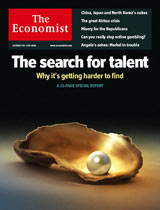I am so going to strangle the next person who comes up to me (online) and announces that he/she is going to get married.
Feel just like the old times, you know - on the GCE results day when you saw your classmate(s) going up to the stage because he/she had X number of distinctions more than you and was/were thus the darling(s) of the school/college. But you still had to smile (otherwise people say you sour grapes).
Or how during NSF days you saw your classmates disrupting for their university studies (to prestigious colleges like MIT, Cornell, Michigan, Penn, Oxford, Cambridge etc ) while you were still stuck in camp doing COS duties/signing extras/being pushed around by half-fucked SAF regulars.
Yup, just like those days. Except this time you can hide your true feelings (i.e envy and jealousy) because the other person is informing you through online media like the MSN or email or friendster. And it is so easy to just type out "congratulations!" (when you don't actually mean it) and say "sorry, I won't be able to attend your wedding because I am out of country/in a different state."
Date: Friday, October 13, 2006
Message: How are you? I will be getting married in Dec this year. Will you be in Singapore?
The cold weather's not helping too. 40F. Makes me grouchy. Oh, plus
my failure in asking her out she turning down my invitation to go out. Sorry, when it comes to love, I am selfish. Hate to see happy couples around me when my social life is so fucked up.

They are bankers, fast-tracked civil servants, teachers, consultants, lawyers, soldiers...and a grad student.Guess I won't show up for the upcoming 10th year reunion. F's wedding day is a good time for the gathering. XZ is already sending out emails asking for an opportune time to meet.
-----------------------------------------------------------------------
I don't really care about the rest. Except
one, who has yet to declare her date. It took me an awful lot to get over the break-up, but somehow there is this nagging feeling a part of my heart is still with her.
What will I do? How will I feel?
Technorati:
love,
marriage,
couple,
class of 96












